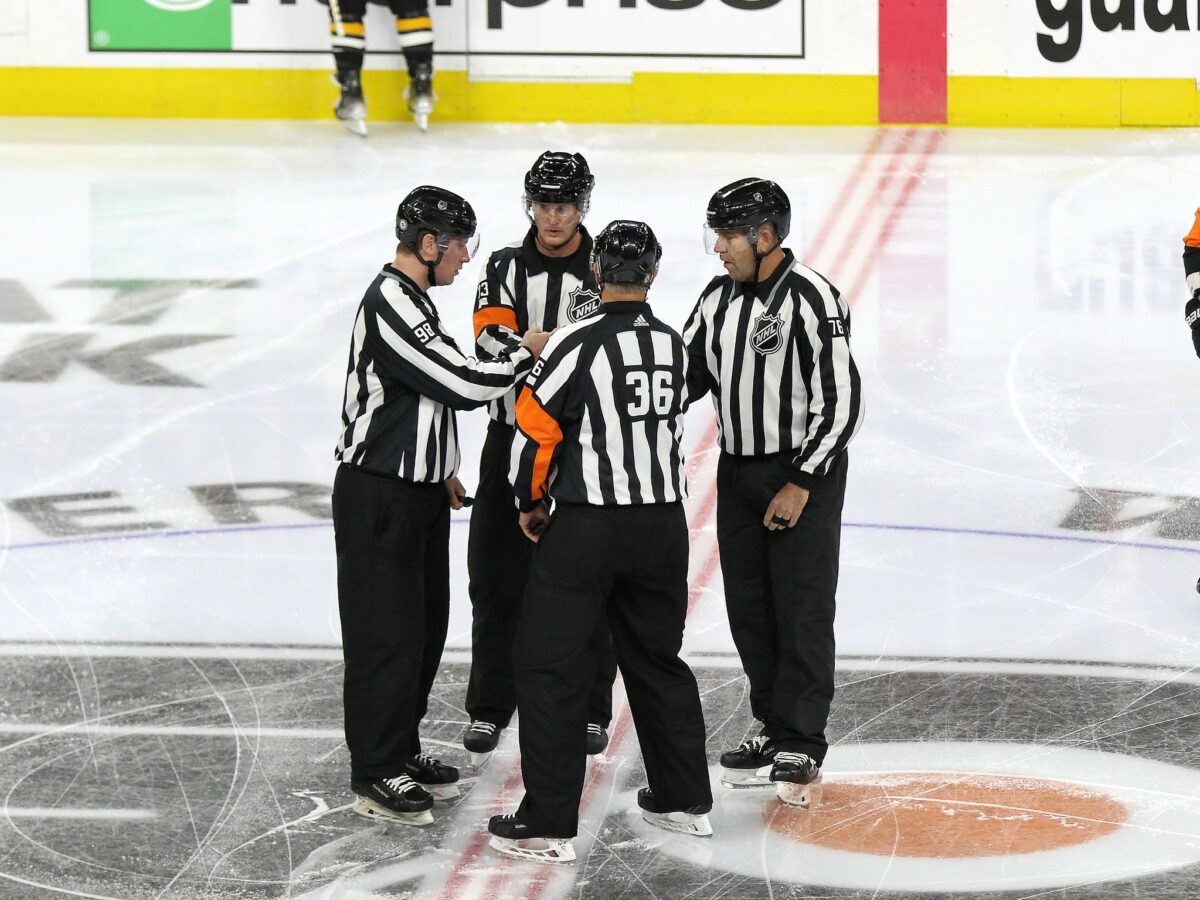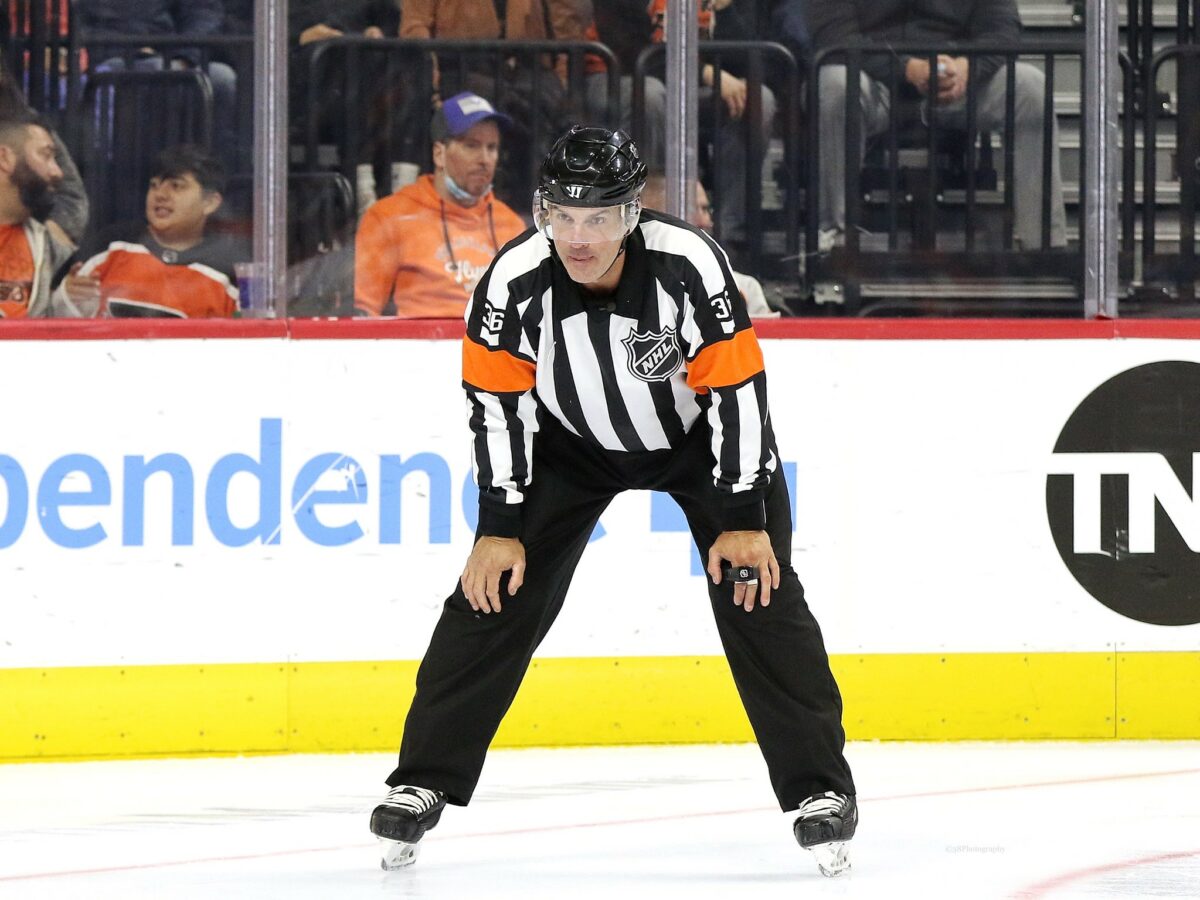What is the first thing you think of when someone says to you “NHL referees?”
Inconsistent? Terrible? Biased? Hates your favorite team? I’m sure you have felt all of these things at once if a bad call was made against the team you cheer for.
It seems the topic of officiating is at the forefront of these playoffs. Whether it’s the “high-stick” by Gabriel Vilardi or officials being “manipulated” according to Maple Leafs’ head coach Sheldon Keefe, the truth is you have an opinion of them and their calls.
But do you know who we never hear from? The officials themselves. The NHL is like most sports leagues in that their referees are not subject to meeting with the media in any capacity. They never have to answer for calls they make or don’t make. There is a perception out there that they aren’t being held accountable.

While referees are constantly being evaluated with the best ones being rewarded with playoff games, we still never hear from them directly. The time has come for this standard to change in the NHL.
Players and coaches must be made available to the media and are held accountable. Why aren’t officials held to that same standard? Allowing referees to talk postgame would be beneficial for the NHL.
Benefits of Media Availability
Anyone involved in hockey knows that most calls are judgment calls. This opens the door for crucial calls to be missed if either the referee didn’t fully see the play or they saw the play and just flat out didn’t call anything.
The thing that’s lacking that everyone would benefit from is hearing directly from the official as to the why and what they saw. For instance, let’s go back to the end of Game 3 between the Oilers and Kings, the Vilardi “high stick” game.
The Kings scored what turned out to be the game-winning goal shortly after a potential high stick of the puck. Replay shows what looks to be the puck touching Vilardi’s stick and then hitting the back of Mattias Ekholm. A Kings’ player proceeds to touch the puck. That is playing the puck with a high stick which would stop play immediately.
The play never stopped. Trevor Moore beat Stuart Skinner to give the Kings a big 2-1 series lead. It went to review. Review upheld the call on the ice. Considering Connor McDavid saw the play and saw the puck hit Vilardi’s stick, he thought the play should have been whistled dead in that moment. This would have made for the perfect moment for one of the on-ice officials to speak about what they saw and what went into that review.
If replays show the puck hitting Vilardi’s stick, did they not have that angle to view? This play calls the replay system into question and we’ll never know what the referee saw or was thinking.
Another recent example is Game 4 between the Stars and Wild. Marcus Foligno took a high hit that cut him in his nose. But he gets the only penalty for tripping on the play. Foligno postgame went off on the officials and said “it’s a joke.” Again, we will never know what the mindset of the referees were in a critical moment of a playoff series.
What are the benefits of officials speaking to the media? First is accountability. Second is clarity and insight into a big moment in a game. Third is giving the officials the ability to defend their calls. Fans will react no matter what but at least they’ll know what went into a call or non-call.
NFL Does It Right
A system of officials meeting with the media doesn’t have to be a circus. The NFL has this right with their pool reporter system.
In that system, one reporter meets with an official to ask questions about the biggest moments or calls in a game. You can see an example of how that works here.
The NHL can easily implement this kind of system if they want to. The issue here is that they are pretty resistant to this kind of big change in procedure. But given what all is at stake, they need to seriously consider making this change.

It doesn’t have to be for every game either. If there is a big call or a need to speak to a referee postgame, put a procedure in place for a designated member of the Professional Hockey Writer’s Association to be that game’s pool reporter. Should the need arise, they get access to the official to ask questions and then the official’s answers are shared afterwards.
This way, the officials are held accountable while not having to meet with a massive media scrum.
You Might Also Like
- Fixing the NHL’s Boring & Broken 3-on-3 Overtime
- Alexei Yashin Trade Tree Continues to Grow
- The Race for Gavin McKenna & Ivar Stenberg Is About to Heat Up
- Penguins, Capitals & Bruins Show How to Navigate a Retool on the Fly
- NHL’s Most Disappointing Teams at the Olympic Break
Referees have a tough job. They have to have eagle eyes for one of the fastest sports in the world. They’re going to miss calls. By making them available to the media, we can finally get their insight into big moments without needless speculation.
While it is great to have former referees as rules analysts on the different broadcasts, the NHL would massively win by allowing access to on-ice officials especially after playoff games. The benefits far outweigh the cons.
If this can work in other sports, it can work in the NHL. It’s ultimately up to Gary Bettman and Bill Daly to finally make it happen.
